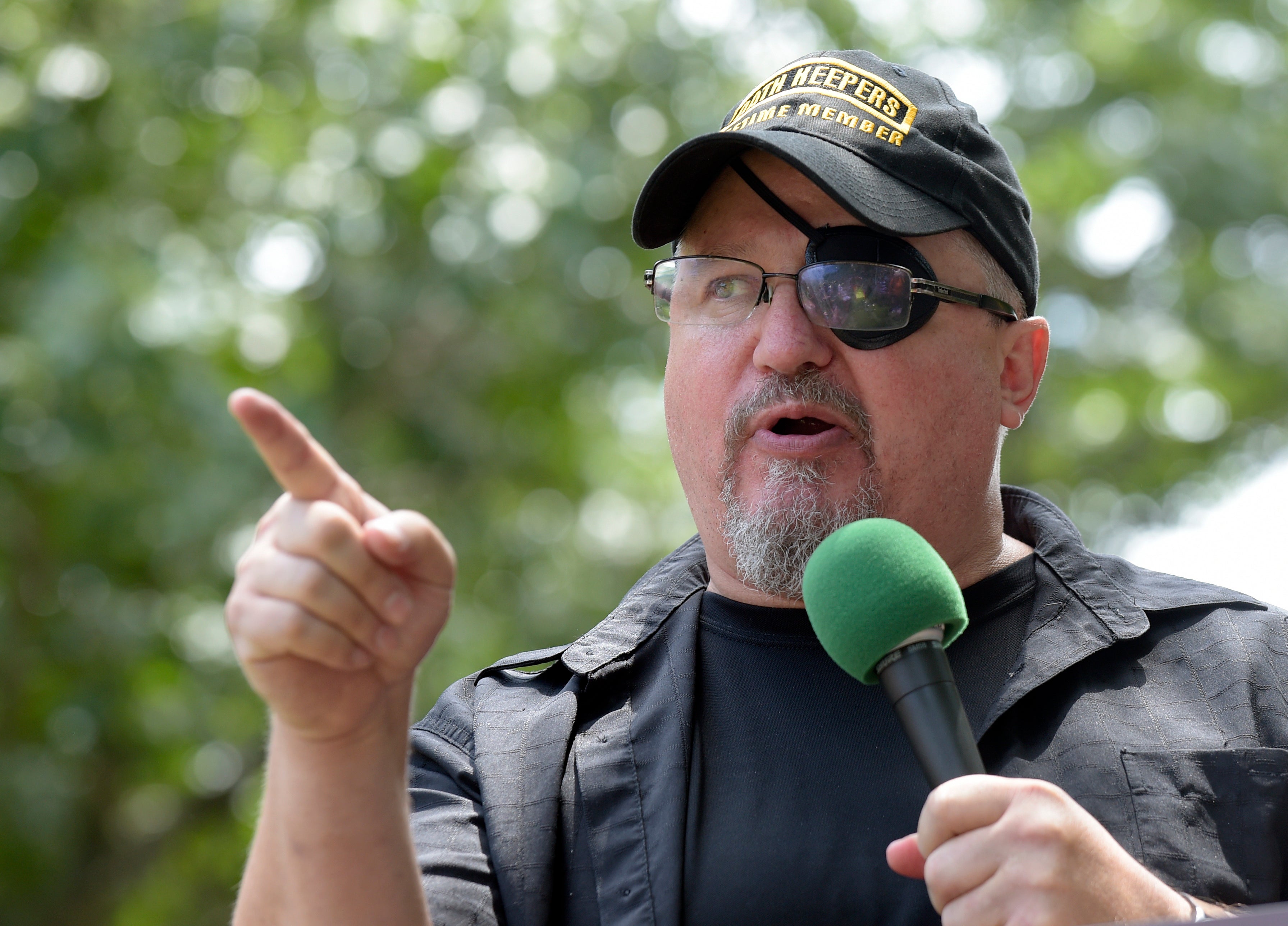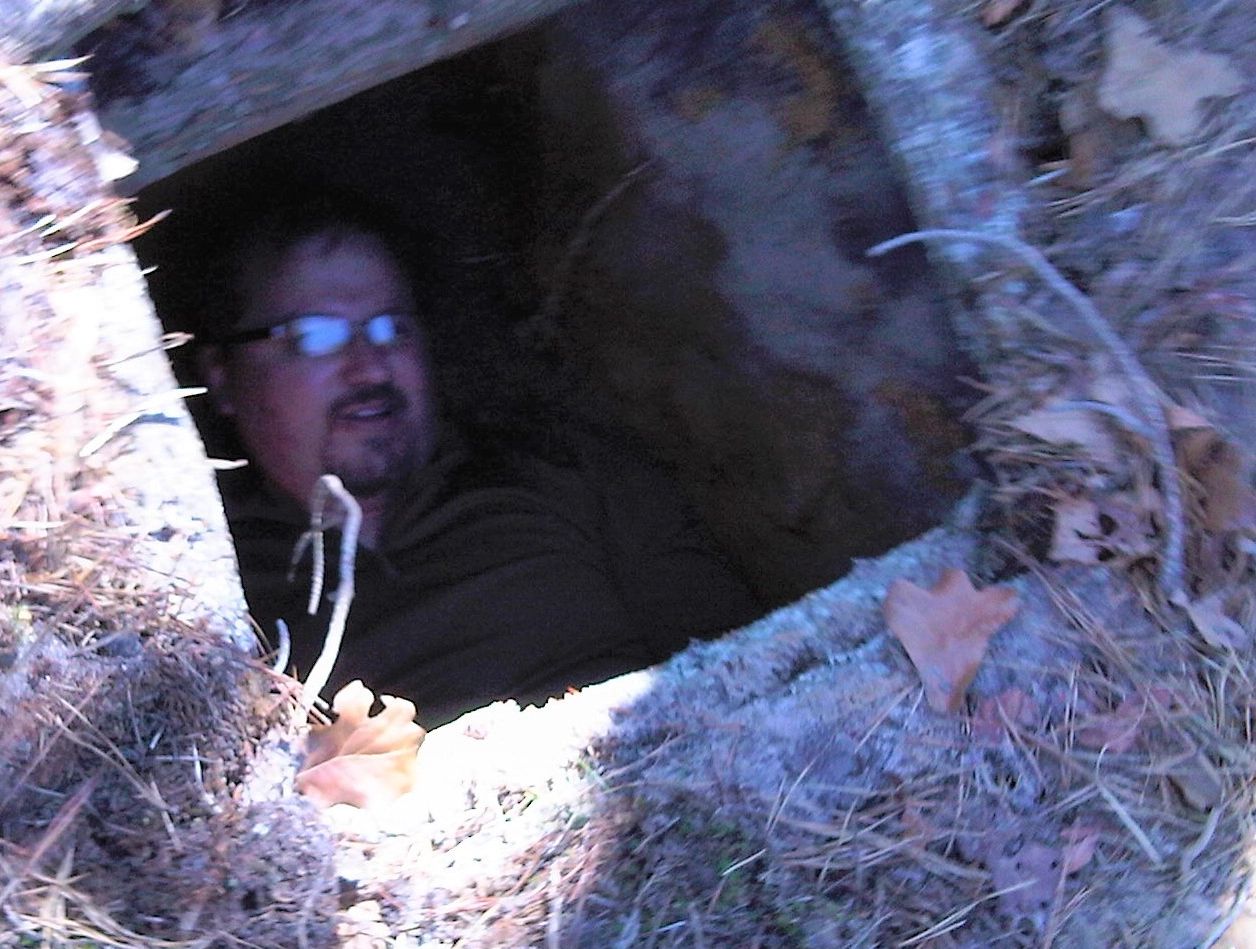Stewart Rhodes: Leader of Oath Keepers militia denied bail ahead of trial for seditious conspiracy
Rhodes stands accused of trying to ‘oppose the lawful transfer of presidential power’

Stewart Rhodes, the leader of one of the largest extremist groups in the United States, has been denied bail ahead of his trial for seditious conspiracy.
Mr Rhodes, the founder of the Oath Keepers militia, stands accused by prosecutors of organising a plot to “oppose the lawful transfer of presidential power by force,” which was centred around the attack on the US Capitol last year.
The 56-year-old was arrested on January 13, just over a year after the attack, along with 10 other alleged co-conspirators who also belonged to the Oath Keepers. Prosecutors allege the plot began just days after the 2020 election, and involved bringing weapons and ammunition to Washington DC with the intention of preventing Joe Biden from becoming president.
Mr Rhodes’s attorney, James Lee Bright, had asked US District Judge Amit Mehta to reverse a magistrate judge’s order that he remain in jail ahead of his July trial, claiming “there was no conspiracy to overthrow the government,” and referring to it instead as “bombastic language.”
But in his ruling, Judge Mehta said “based upon all of the evidence, the strength of that evidence, the nature of that evidence” relating to the plot and his actions since, Mr Rhodes was “still dangerous.”
“Everything I’ve seen and heard today has convinced me that Mr Rhodes is a highly sophisticated individual,” he added.
He added that there was “no combination of conditions that would ensure the safety of the community,” should he be released ahead of trial, and “there is no way to ensure that he won’t engage in dangerous conduct.”
The judge refuted Mr Rhodes’ claim that he did not know his co-conspirators would enter the Capitol that day, and that they acted on their own. He said the Oath Keepers was a “hierarchical organisation,” and that its members “are not people who do things without orders.”
Mr Rhodes is the most high-profile of more than 725 people charged in relation to the attack by supporters of then-president Donald Trump on Congress as it gathered to certify Mr Biden’s victory.
The charges against him represent one of the most organised and serious efforts to overthrow the US government in modern history.
That effort began just two days after the presidential election, according to the indictment. Before the results had been fully counted and Mr Biden’s victory confirmed, Mr Rhodes began plotting to stop the transfer of presidential power. In an invitation-only, end-to-end encrypted group chat on communication app Signal, he told his followers to refuse to accept the election result.
“We aren’t getting through this without civil war. Too late for that. Prepare your mind, body, spirit,” he wrote.
On 9 November, Rhodes held an online video call in which he “outlined a plan to stop the lawful transfer of presidential power, including preparations for the use of force, and urged those listening to participate,” according to the indictment. The plan was set for January 6, the day the results of the presidential election would be certified.
In early January, Rhodes’ efforts moved from the theoretical to the real world. He began spending thousands of dollars on weapons: military-grade firearms and tactical gear. He spent $7,000 on two night vision devices and one weapon sight, the indictment said, and sent them to Washington DC, where they arrived on 4 January. He spent another $5,000 on “a shotgun, scope, magazines, sights, optics, a bipod, a mount, and gun-cleaning supplies,” according to the indictment.

In a group chat titled “Leadership Intel Chat” and other Signal groups, Rhodes and his fellow Oath Keepers planned for 6 January. “There is no standard political or legal way out of this,” he wrote to the group.
On the morning of the Capitol attack, Rhodes left a hotel in Virginia and drove to Washington DC. After an incendiary speech by Trump in front of the Washington Monument, crowds began to move towards the Capitol building. At a hotel in nearby Alexandria, Virginia, a “quick reaction force” of Oath Keepers was waiting with weapons to rush into Washington DC to intervene.
“The QRF teams guarded an arsenal of firearms and related equipment and were prepared to speed those weapons into the hands of co-conspirators on the ground in Washington when directed by Rhodes or other conspiracy leaders,” court documents alleged.
At around 2.12pm, Rhodes entered the restricted Capitol grounds on the northeast side, according to the indictment. While many of his team entered the Capitol building, there is no evidence that Rhodes himself did. But he continued to direct Oath Keepers from the outside.
The last message Rhodes sent on 6 January read: “Patriots entering their own Capitol to send a message to the traitors is NOTHING compared to what’s coming.”
Last month, a Texas judge ordered Mr Rhodes be jailed pending trial in Washington, DC.
"The evidence shows Defendant orchestrated a large-scale attack on the federal government with the purpose of intimidating, by violence, federal officials and disrupting official governmental proceedings incident to the transfer of power in the Executive Branch following a national election," Magistrate Judge Kimberly Priest Johnson wrote in her opinion.
Judge Johnson added that Rhodes’ “authoritative role in the conspiracy, access to substantial weaponry, and ability to finance any future insurrection, combined with his continued advocacy for violence against the federal government, gives rise to a credible threat that Defendant’s release might endanger others by fostering the planning and execution of additional violent events."
The judge also revealed that Rhodes’ estranged wife, Tasha Adams, contacted the court after Monday’s detention hearing and she reportedly testified to Rhodes’ “violent tendencies,” and that she feared for her safety and the safety of her six children should he be released.

